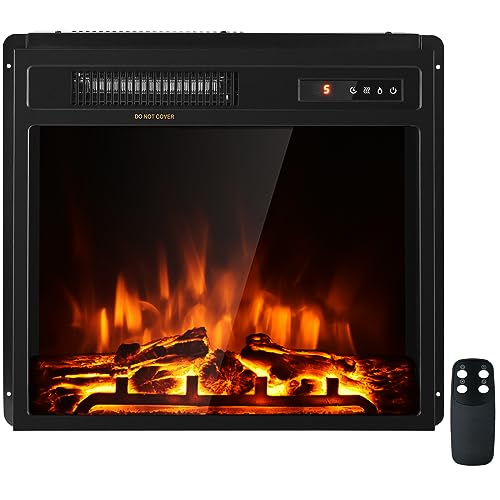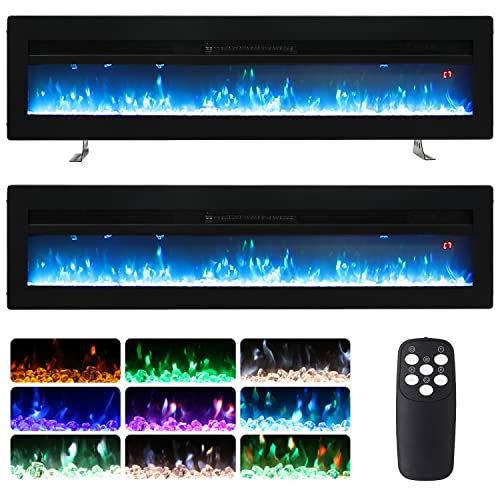9 Things Your Parents Teach You About Cheap Wood Burning Stoves
페이지 정보

본문
 Cheap Wood Burning Stoves
Cheap Wood Burning StovesWood and pellet stoves add an inviting atmosphere to any home. However, homeowners should consider some important factors before making a purchase. Cost, energy efficiency and environmental impact are a few of them.
A wood stove must have a combustion efficiency rating of at least 75% as certified by the EPA. This will reduce the amount of smoke emitted into air and you could be qualified for a tax rebate.
Cost
Many people choose to have a wood-burning stove as a cost-effective and environmentally friendly heating solution for their home. They are popular during the winter months as they give the feeling of warmth. They are also a good alternative to the rising prices of electricity and gas. People who use log burners should purchase locally and sustainably sourced wood and ensure it is properly dried. They should keep the firewood in a dry and well ventilated area. A modern log burner of good quality burns the fuel at a high rate, meaning that four fifths of the energy stored in the logs are converted to heat.
Another advantage of wood stoves is that it can be used to provide backup heat in the case of power failure. However, they aren't suitable for all homes since they cannot heat the entire space. If you are considering installing stoves, consult a professional to get guidance and recommendations. This will help you choose the most suitable stove for your home.
Unlike other forms of heating, wood burning stoves produce very little or no pollution. However, they do create particulates and organic gases such as carbon monoxide, which are harmful if inhaled. These gases are released by burning timber and can cause lung problems. This issue can be cured through the use of a smoke-control system and properly drying the logs before burning.
A kilowatt of heating power can be generated by a wood-burning stove for less than a fifth of the price of gas or electricity and it can be free if you have access to inexpensive or free firewood. Wood is a renewable fuel source which means it will never run short. A wood stove can help you save money and make your home more energy efficient.
A wood stove will add value to your home and could even increase its value. It is simple to set up, and is available in a variety of styles. They can be used in any room and can serve as a focal piece in a dining area or living room.
Environmental impact
Wood stoves, if used properly can be a renewable energy source and can be cheaper than electricity or gas. They are also not dependent on energy companies, an important feature as prices continue to increase. They also provide an alternative source of heat in the event of power outages. They do have their own drawbacks. If they are not properly burned they could cause pollution and damage to the environment.
Wood smoke pollution is harmful to humans, particularly older people and children due to its fine particles and other harmful elements. These pollutants can cause eye irritation and respiratory problems. This is particularly dangerous for people who have already existing health issues. It is also a major risk of premature death and heart disease.
The environmental impact of a low-cost wood-burning stove varies based on the kind of wood used and how it is used. Unseasoned or damp logs produce more smoke than kiln-dried logs. They can release more particulate matter, volatile organic compounds and polycyclic aromatic hydrocarbons that contribute to air pollutants. This type of wood-burning fireplace can also create a fire hazard.
Many governments have offered incentives in the past to encourage people to replace their old wood stoves with more environmentally friendly models. But a recent study has revealed that the new stoves still emit 775 times more tiny particles pollution than modern HGV trucks. The study was commissioned and backed by experts by the campaign group Mums for Lungs.
The best wood burning stove method to lessen the environmental impact of wood stoves is to use kiln-dried logs and use a clean-burning stove. These stoves can reach efficiency of up to 80%. This is more efficient than an open fireplace. The fuel is also burned more efficiently, resulting in less waste. A wood stove is also more secure than an open flame, which could cause an fire in your home.
Sustainable use of forests and woodlands benefits the environment. The harvesting of shrubs and trees creates habitats for wildlife, and the openness of the canopy of the forest promotes a greater diversity of plants. It also improves soil health which reduces runoff and erosion. However should the forest not replanted after harvesting the ecosystem could be damaged.
Energy efficiency
A wood stove can be a great choice if you are looking to add a fireplace to your home, or you want to reduce your energy costs. Before you purchase a wood stove, be aware of the upfront cost. According to experts the typical wood burning fireplace stove can cost up to $1,300. And that's not including installation fees and other supplies like flue material.
In addition to reducing your energy bills wood stoves can also help reduce greenhouse gas emissions by converting harmful substances into clean-burning carbon dioxide. They also can add value to homes and can be bought for as little as $500 for an old or recycled model. A more modern stove can cost upwards of $10,000 but there are many options in between.
If you're considering buying wood stoves, make sure that it's EPA certified. These stoves have higher efficiency of combustion, meaning you'll need less wood to heat your home. The stoves that are certified by the EPA have cleaner combustion and lower harmful air pollutants.
High-efficiency stoves also keep the combustion zone warm enough to burn gases from wood or other fuels. This stops them from escaping into the room as smoldering gasses that can cause creosote deposits within the chimney, and also pollute the surrounding environment.
You'll also need to have an area in which you can store the wood for fuel and enough space to stack it. You'll also need to ensure that the stove is placed within the room and there is adequate clearance from walkways. Additionally, you'll need an air-conditioning system to eliminate the gas and fumes out of your home. The advantages of a wood stove are far greater than the initial investment, though. Royce is an avid wood boiler user for 15 years, claims to save thousands of dollars on heating bills each year. He attributes his savings to not having to pay for electricity or oil. He also enjoys the smell of burning wood and watching the flames dance.
Maintenance
A wood stove is among the most effective methods to heat your home without the use of electricity. These versatile appliances are energy efficient, and provide a cozy ambiance and can last for years with regular maintenance. However there are additional costs associated with purchasing and installing an oven. These include the cost of the materials and labor. They can also be affected by the type and size of the stove. For example, a large wood burning stove, cast iron catalytic stove is likely to cost more than a smaller stainless steel non-catalytic stove. There are additional installation costs for changing existing framing, surface finishes and plumbing, HVAC and electrical systems. The cost of ducting to get fresh air is another cost to be considered.
Burning wood is a dirty process that produces creosote and ash. It is therefore essential to maintain your log burner. It is recommended to clean your log burner once every year. During this process you can check the stove's parts for damage or wear. If the firebricks have been damaged or worn it's a good idea to replace them. Also, you should clean the chimney at least twice every year to get rid of creosote and blockage, as well as prevent flue gas leaks.
If you want a cheap wood heater that won't break the budget, pick one with an easy design and a few moving parts. These types of stoves are less likely to fail than elaborate, engineered models. In addition, the simplicity of a stove's design will lower the cost of maintenance and repair expenses.
Another way to save money on wood stoves is to purchase a secondhand or refurbished unit. While these units may not be as efficient in energy as the latest models, they're still an excellent option for people on a budget. In addition, buying an older or refurbished stove can save you the upfront costs of buying and installing.
When comparing prices, it's an ideal idea to consider the cost of consumables such as logs and firewood. The SIA (Stove Industry Alliance), estimates that a cubic metre of kiln-dried logs costs between PS120 and PS140. Some advanced stoves let you burn alternative fuels such as pellets and smokeless coal alongside logs. This can be more cost-effective during certain times of year.

- 이전글How Much Can Auto Accident Compensation Claims Experts Make? 25.01.12
- 다음글15 Terms That Everyone Working In The Car Accident Claim Industry Should Know 25.01.12
댓글목록
등록된 댓글이 없습니다.
